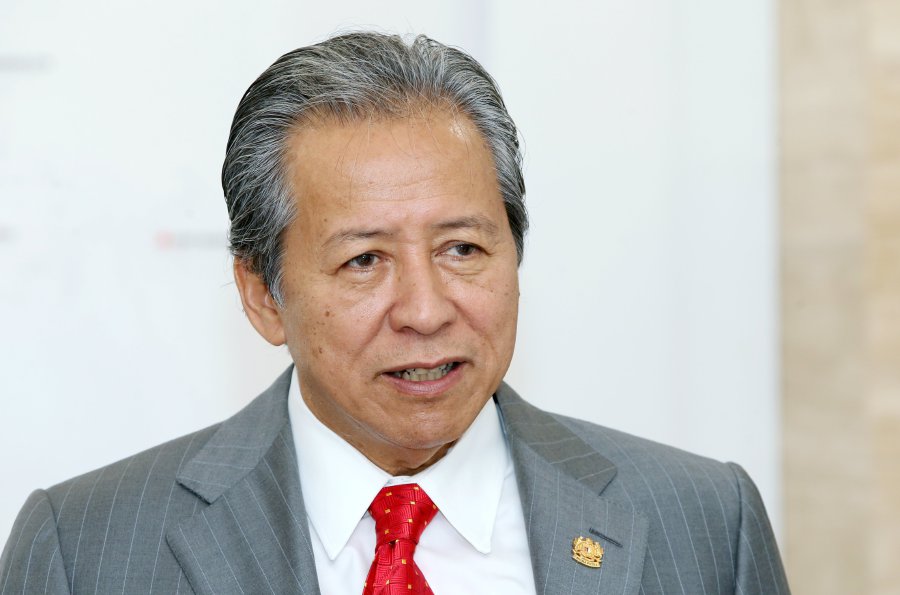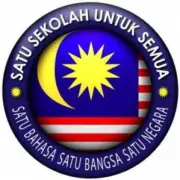KUALA LUMPUR: Foreign Minister Datuk Seri Anifah Aman will lead the Malaysian delegation in the Special Asean-US Foreign Ministers Meeting in Washington DC on May 4.
The foreign ministers of all 10 Asean member states and the Asean Secretary-General are expected to attend the meeting with United States Secretary of State, Rex Tillerson.
The main agenda for the meeting will be on the US foreign policy towards Asean and the region, according to a statement issued by the Foreign Ministry.
The special meeting is expected to provide the opportunity to review Asean and US relations apart from exchanging views on regional and international issues, among others.
A day before the special meeting, senior officials from the member states will also be taking part in the 30th Asean-US Dialogue.
According to the statement, this year marks the 40th anniversary of the establishment of the Asean-US dialogue relations.
The Asean foreign ministers are also slated to sit in on a High-Level Roundtable Forum which will be attended by the US Secretary of Defense James Mattis and National Security advisor H. R. McMaster.
The forum is organised by the Centre for Strategic and International Studies.
Asean members are Malaysia, the Philippines, Brunei, Cambodia, Indonesia, Laos, Myanmar, Singapore, Thailand and Vietnam.
It will be the first time Asean’s foreign ministers will meet with Tillerson since the latter assumed his role on February 1.
*************
A proud son of Sabah Foreign Minister Dato’ Seri Panglima Anifah Aman is the best man for the job to hold fort for the nation through diplomacy and intricate bi-lateral discourse in the regionally complex geo-political game which inbuilt all the ingredients to go ugly.
At the moment, Foreign Minister Anifah is the United States to attend ASEAN-US dialogue with the new Secretary of State Rex Tillerson.
NST story:
Anifah, Asean foreign ministers to attend special meeting with US Secretary of State
The recently concluded ASEAN Summit in Manila failed to see a united region over disputed areas amongst member nations but also unified on China’s imaginary claim of the ‘Nine-Dash-Line’.
The Diplomat story:
After Summit, ASEAN Remains Divided on South China Sea
The Association of Southeast Asian Nations (ASEAN) wrapped up its annual summit in the Philippines on April 29. The regional bloc comprises 10 nations: Brunei Darussalam, Cambodia, Indonesia, Laos, Malaysia, Myanmar, the Philippines, Singapore, Thailand, and Vietnam.
ASEAN loyalties have been tested in recent years with the active encroachment of China in the South China Sea under the guise of its own nine-dash line maritime claim, despite the singing of a non-binding Declaration of Conduct in the South China Sea in 2002 to discourage any hostile acts between ASEAN and China. All 12 nations agreed not to use threats or force to assert any territorial claims; however, China has built artificial islands in disputed areas, including several installations with potential military uses in the Spratly Islands.
In 2013 the Philippines sought clarification from the an arbitral tribunal as to whether China’s nine-dash line could negate the Philippines’ Exclusive Economic Zone (EEZ) as guaranteed under the United Nations Convention on the Law of the Sea (UNCLOS), of which China is a signatory. In 2016, the Permanent Court of Arbitration tribunal concluded that China had no historic claim to resources to the sea areas falling within the nine-dash line.
However, at the ASEAN Summit, Philippine President Rodrigo Duterte, the sitting chairman of ASEAN, said any discussion about the fortification of reclaimed islands in the South China Sea by China was useless, and that he did not seek any “trouble” with China. According to Duterte, the South China Seas issue was never raised during his discussions with the other ASEAN leaders, except for the prospect of a Code of Conduct to be released “at the very least by the end of this year.” The formulation of the code has been ongoing since 2010.
But some ASEAN parties doubt China’s sincerity toward the CoC. China refused to make binding the existing 2002 Declaration of Conduct in the South China Sea. ASEAN secretary general and Vietnamese politician Le Luong Minh told Reuters the code needed to be legally binding to put a stop to “unilateral actions,” because a previous commitment to play fair had been ignored.
Speaking to the South China Morning Post, Indonesian President Joko “Jokowi” Widodo has proposed that states involved in the South China Sea disputes should engage in “concrete cooperation” before any code of conduct is developed.
Indonesia does not have any active, competing territorial claims with China over any part of the South China Sea, but the Indonesian archipelago does lay claim to EEZs in the resource-rich waters around its islands, and Asia’s third most populous nation has not hesitated to exercise its claims. Indonesia has often responded to incursions with the use of force. Indonesian navy patrol boats have fired upon encroaching Chinese fishing vessels and seized vessels have been sunk. Indonesia has also made plans to deploy extra warships, fighter jets, and surface-to-air missiles into the affected regions.
Knowing China’s preference for bilateral agreements with individual countries, Jokowi says that ASEAN needs to come to a common agreement internally before it can negotiate with China. One of the key issues preventing such unity has been the competing interests of member states, with the likes of Cambodia and Laos (neither of which border the South China Sea) often vetoing any directives that would be detrimental to China’s interests.
“I think we need to have a common stand. The most important is that ASEAN internally needs to have a mutual agreement on this issue,” said Jokowi in an interview with the South China Morning Post. “Then and only then can we communicate with China.”
****************
Foreign Minister Anifah professionalism as the nation’s top diplomat is unsurpassed. No other Minister at Wisma Putra held so many talks and discourse with contemporaries in various capacity, chair and forum.
An example is the agreement he achieved with China.

Foreign Minister Anifah Aman with his China counterpart Wang Yi
This is not withstanding that he is a Sabahan and his home state would be most affected if China eventually had their bullying ways on to the imaginary but contemptuous claim which now a major international, the ‘Nine-Dash-Line’.
The resolve of Sabahans as Malaysians is never tested worse than the unilateral claim by the Asian superpower, despite the non existence of legality for China to do so.
Perhaps for the rest of the nation ‘Nine-Dash-Line’ is about the threat on exclusive economic zone (EEZ) as per defined under United Nation Combined Laws of the Seas (UNCLOS), where the bulk of Malaysia’s hydrocarbon reserve is sited.

The second of important maritime route and hydrocarbon deposits within China’s unsubstantiated ‘Nine-Dash-Line’
This is on top on the right of maritime passage, national defence and security and sovereignty of the Federation of Malaysia, all of which is strategic in nature.
It is also the matter of fishing and tourism, which would affect the ordinary Sabahans. Nature and wildlife is also endearing virtues of Sabahans, jealously protective of God’s gift to the state of biological treasury.
Anifah commands the respect of Sabahans of diverse political divide, when it is the matter of the interest of state and Sabahans. He is also proud to voice the interest of his state and fellow Sabahans, to the right ear, in the right tone, on the right forum.
The Star story:
Sunday, 7 August 2016 | MYT 12:58 PM
Anifah leading push to collect dues owed to Sabah
KOTA KINABALU: A group of Sabah leaders are pushing to collect whatever revenue and dues owed to the state by the federal government.
Leading the push is Foreign Minister Datuk Seri Anifah Aman (pic) who is proposing the setting up of a panel of legal and financial experts to pursue the matter.
Anifah said on Sunday that the proposed Sabah Revenue Rights Technical Committee could comprise representatives from Sabah Attorney General’s Chambers as well as the state Finance Ministry.
Civil society leaders and those in the legal profession could also be invited to sit as members of the committee that would be tasked to come up with a report to be submitted to the Prime Minister, he said after hosting a luncheon meeting with a group of Sabah leaders here.
The meeting was held in the wake of the formation of the National Committee on Sabah and Sarawak’s Constitutional Rights.
The meeting was also aimed at gathering additional information regarding Sabah’s revenue rights under the Special Grants and Additional Revenue Rights provisions of the Federal Constitution.
In particular, Anifah said he sought input on Sabah’s existing revenue collection rights and obligations as specified under the Constitution.
‘We are not seeking a change to the Constitution. We are concerned only with following through on Sabah’s obligations in terms of revenue collection under the Federal Constitution with particular emphasis on past uncollected revenues,” he said.
“That is to say, what revenues should Sabah have collected already and how those same revenues can be collected today and in the future,” Anifah added.
Anifah said he was seeking advice and submissions on the question of Sabah’s constitutional revenue rights in respect of the state’s mutual and shared obligations with the federal government and the extent to which these obligations were mandatory.
“The Federal Constitution contains provisions which are designed to safeguard the rights of Sabah,” he said.
“These provisions also make it obligatory for Sabah to collect revenues from various sectors based on the Special Grants and Revenue Rights provisions of the Federal Constitution,” Anifah said.
“To achieve this, the federal government must play its part as these revenues are essential in developing an economically strong Sabah. And a strong Sabah means an even stronger Malaysian Federation,” he added.
Among those present at the meeting were Bingkor assemblyman Datuk Dr. Jeffrey Kitingan, former chief minister Datuk Yong Teck Lee, retired civil servant Datuk Udin Dullah, former Petagas assemblyman Datuk James Ligunjang, medical practitioner Dr. Richard Barrow as well as lawyers Ansari Abdullah and Tengku Fuad Tengku Ahmad.
**************
What Anifah achieved in the confine of the right series of discourse with Prime Minister Dato’ Sri Mohd. Najib Tun Razak and the Federal Government officials is not a matter for his own personal political agenda.
A member of His Majesty’s Cabinet who unfortunately has very limited time to spend on his constituency, let alone his home state, Anifah is a model Minister where the nation comes first.
It would not be surprising if a Second Deputy Prime Minister post is created and being filled by the Foreign Minister. It would complement the role of First Deputy Prime Minister, who is also the Home Minister.









